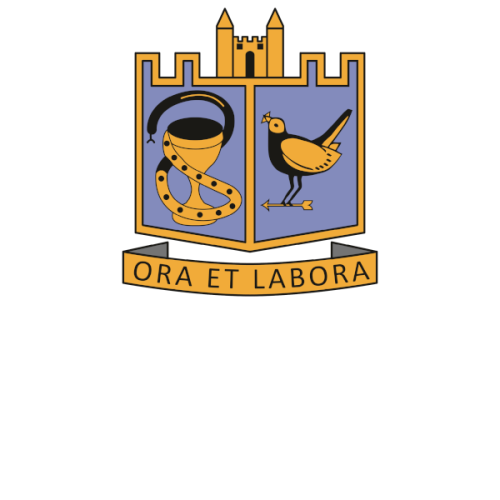RE
Head of Faculty: Kylie Wallis k.wallis@stbenedicts.essex.sch.uk
Curriculum Social media links: @hums_at_stbens
Religious Education at St. Benedict’s echoes Jesus’ invitation to the apostles to “Come and see” by offering all students an opportunity to encounter Christ through their studies, while respecting their individual religious identities. Through a rigorous and engaging curriculum, students are able to grow in knowledge of the Catholic faith as well as other Christian denominations and religions, while also developing their confidence in their own faith and beliefs.
Our high expectations combined with appropriate levels of challenge and support ensures all students are able to access their learning and fulfil their potential. Throughout Key Stages 3 and 4 students are encouraged to develop independent learning skills, personal resilience and the ability to analyse and form judgements about different viewpoints, which help them to build towards a rewarding and successful future in society beyond Key Stage 4.
At Key Stage 3, Years 7 and 8 follow the new Religious Education Directory, ‘To know you more clearly’, which provides a rigorous and thorough understanding of the key beliefs, teachings and practices of the Catholic Church. They also explore other Christian denominations and faiths such as Christian Orthodoxy and Islam.
In Year 9, students study ethical theories such as Kantian Ethics and Utilitarianism and apply them to real-world issues. This leads to examining events that are difficult to understand including poverty, war and the Holocaust, and equipping students with the tools to bring about a positive change in the world through Catholic Social Teaching and the First Give programme where students have the opportunity to raise awareness for and support a local charity.
Throughout Key Stage 3, students will develop their skills of description, explanation and the analysis of different points of view before coming to reasoned judgements in a way that supports their transition to Key Stage 4.
Home learning at KS3
All home learning will be set via ClassCharts.
Students are expected to meet the deadlines set or to contact their teacher in advance of the deadline to discuss any support required in completing the task.
What can parents/carers do to support at home?
Talk with your children about their learning in class and their home learning. Create a supportive environment for them to ask questions, share their thoughts and engage in meaningful discussions.
Discuss current affairs with your children, asking them their point of view and allowing them to explore and explain their ideas in depth. Encourage them to ask questions about what is happening in the world around them and how people’s beliefs affect the way they live.
Visit museums and sites of religious interest and encourage them to ask questions and engage with the exhibits.
Encourage discussions about moral and ethical issues when watching film and TV. Even Shrek can be educational!
Students follow Eduqas Religious Studies Route B. They study a range of topics related to the foundational and applied theology of the Catholic Church. This includes exploring key aspects such as the nature of God, the life and teachings of Jesus Christ, the sacraments and the importance of prayer and worship. Students will then apply these teachings to moral and philosophical issues such as abortion, euthanasia, capital punishment and stewardship. They will also delve into the significance of scripture, tradition and the teachings of the Magisterium in shaping Catholic beliefs. Teachers will support students to compare and contrast Catholic beliefs and teachings with those of the Jewish faith.
Home learning at KS4
All home learning will be set via ClassCharts.
Students are expected to meet the deadlines set or to contact their teacher in advance of the deadline to discuss any support required in completing the task.
What can parents/carers do to support at home?
Talk with your children about their learning in class and their home learning. Create a supportive environment for them to ask questions, share their thoughts and engage in meaningful discussions.
Discuss current affairs with your children, asking them their point of view and allowing them to explore and explain their ideas in depth. Encourage them to ask questions about what is happening in the world around them and how people’s beliefs affect the way they live.
Visit museums and sites of religious interest and encourage them to ask questions and engage with the exhibits.
Encourage discussions about moral and ethical issues when watching film and TV.

